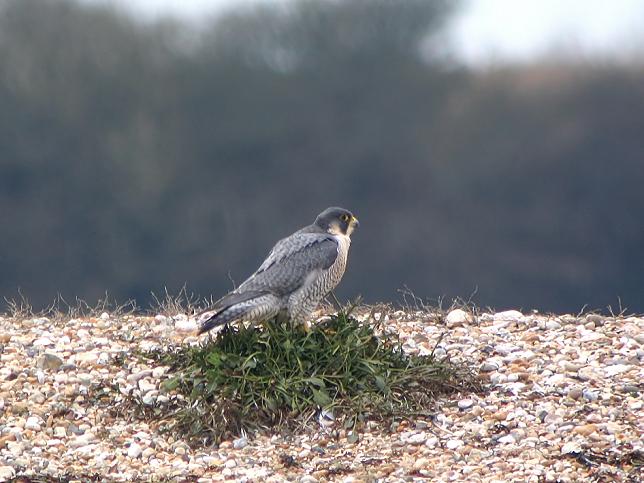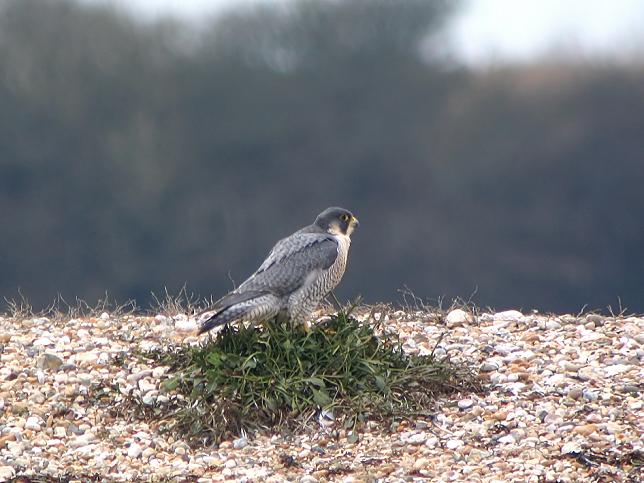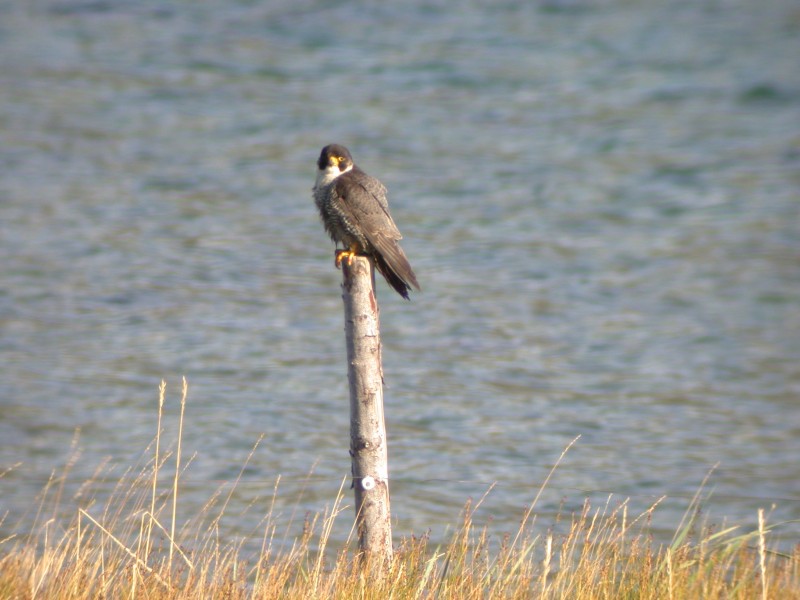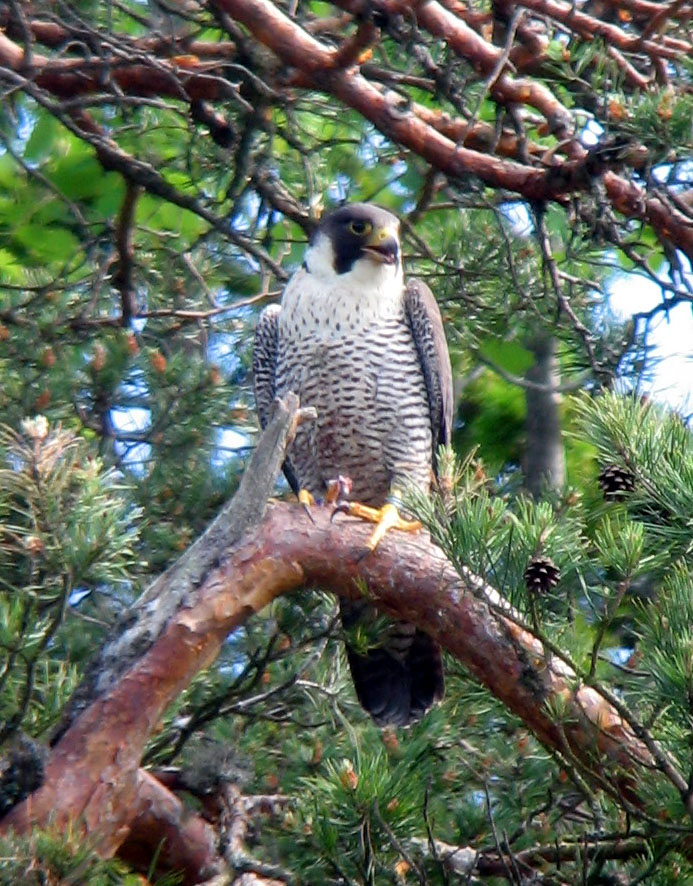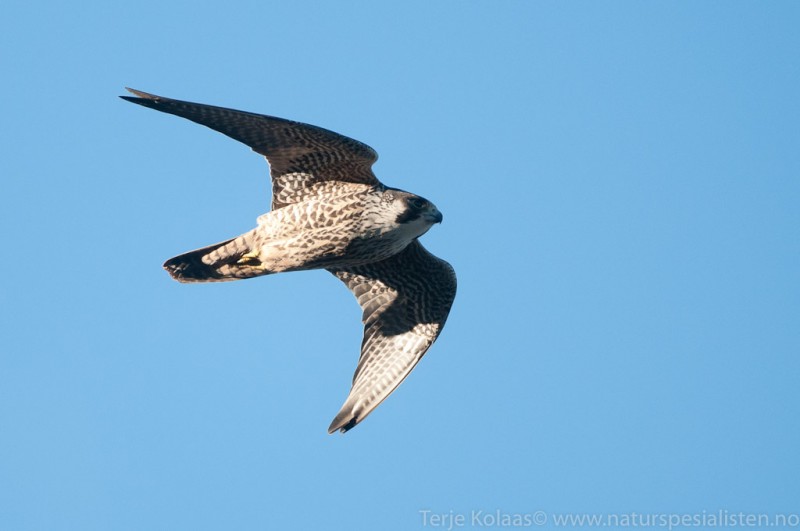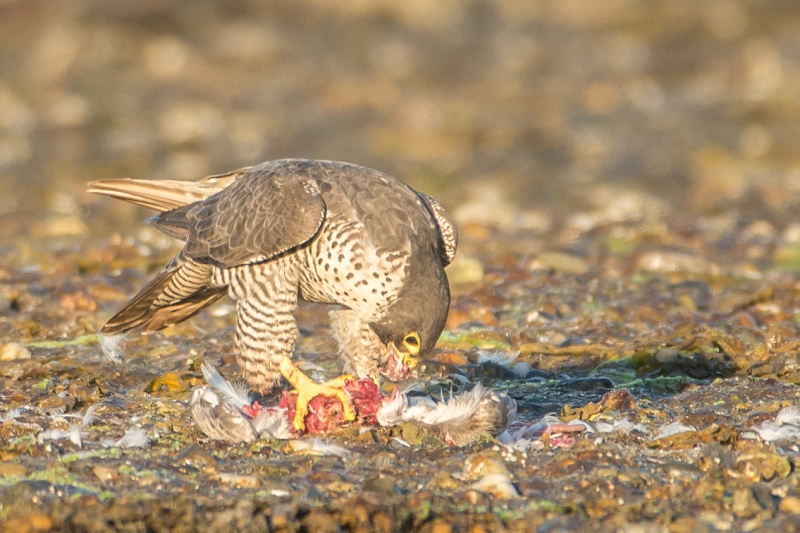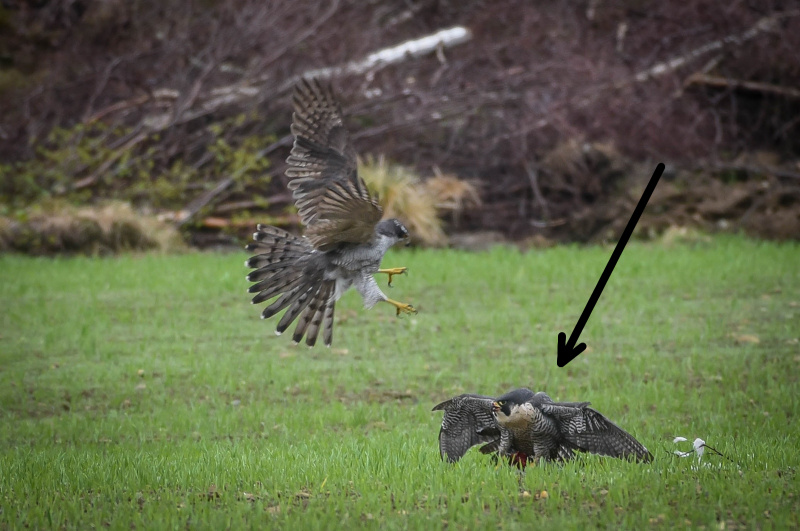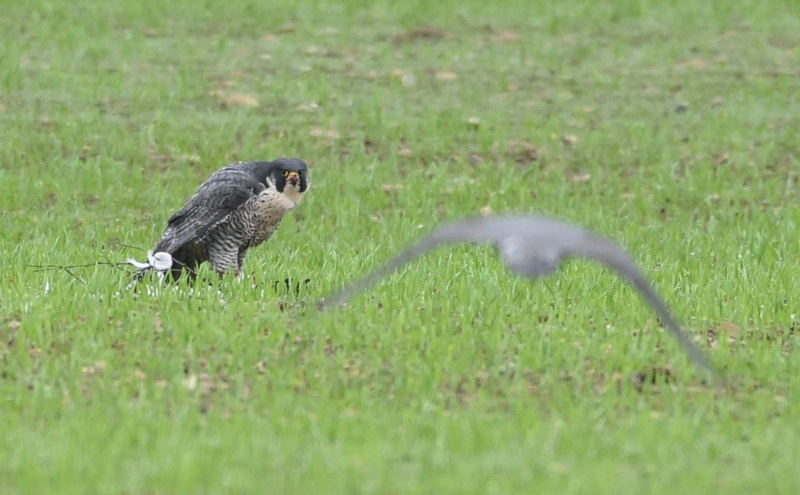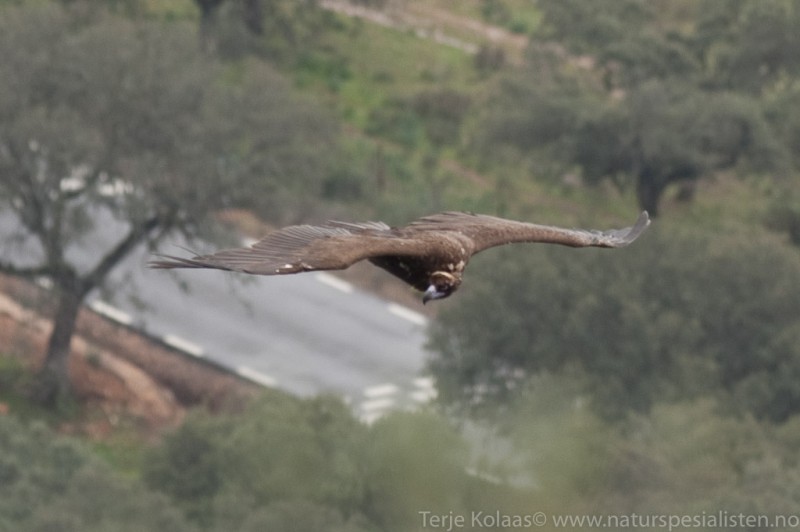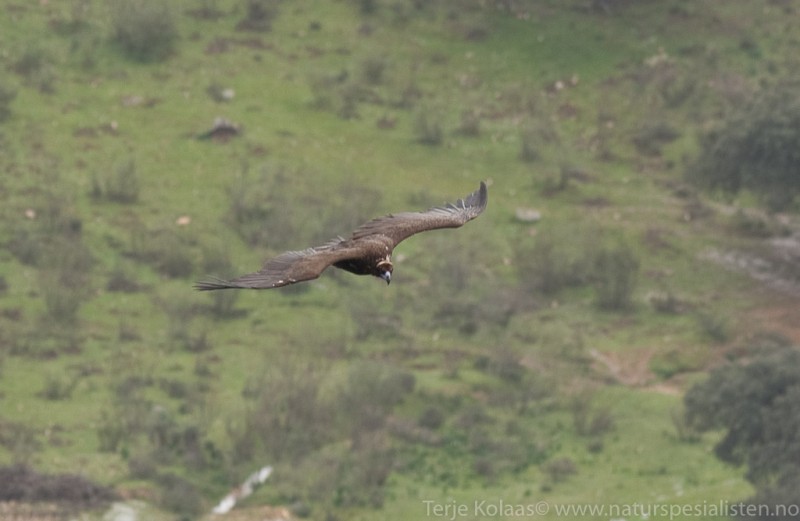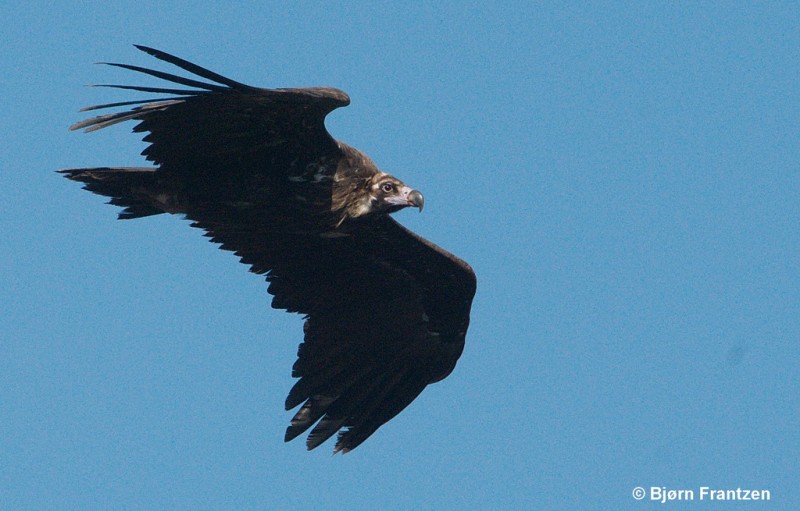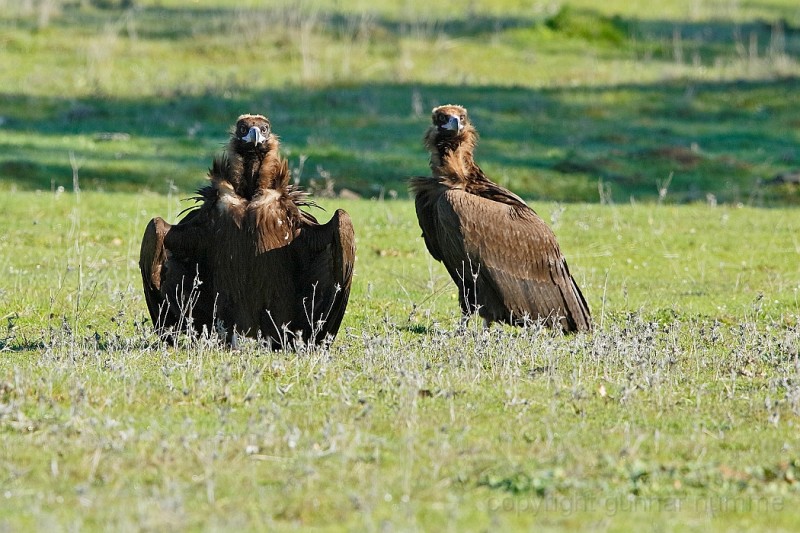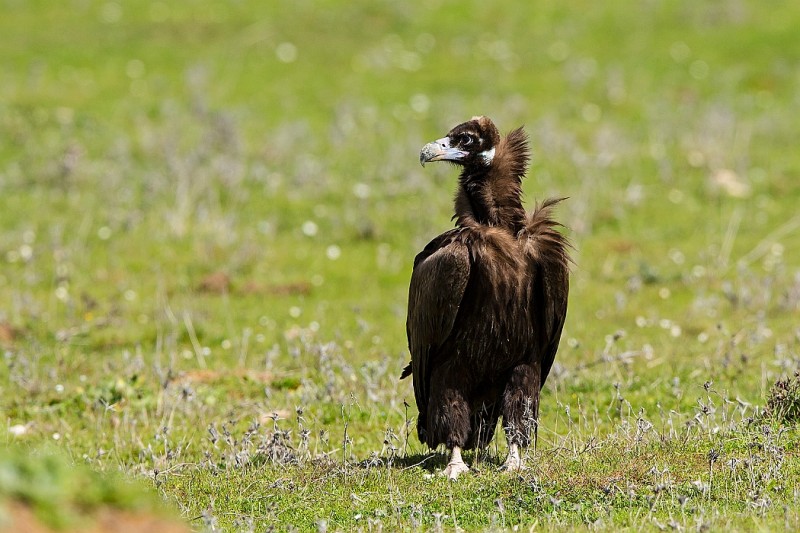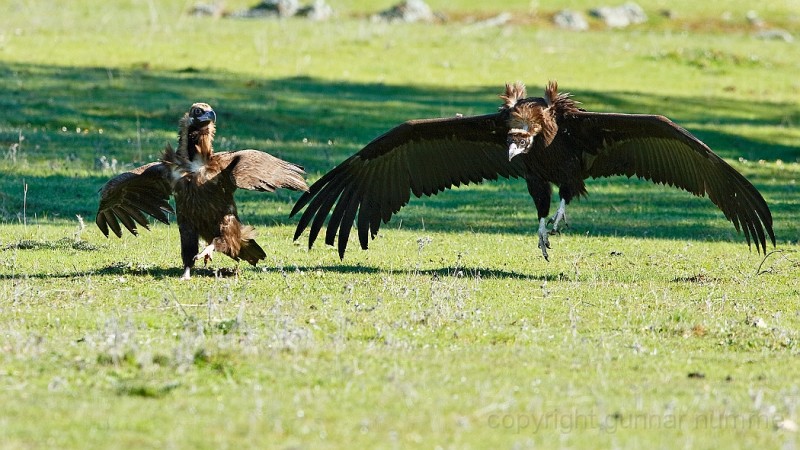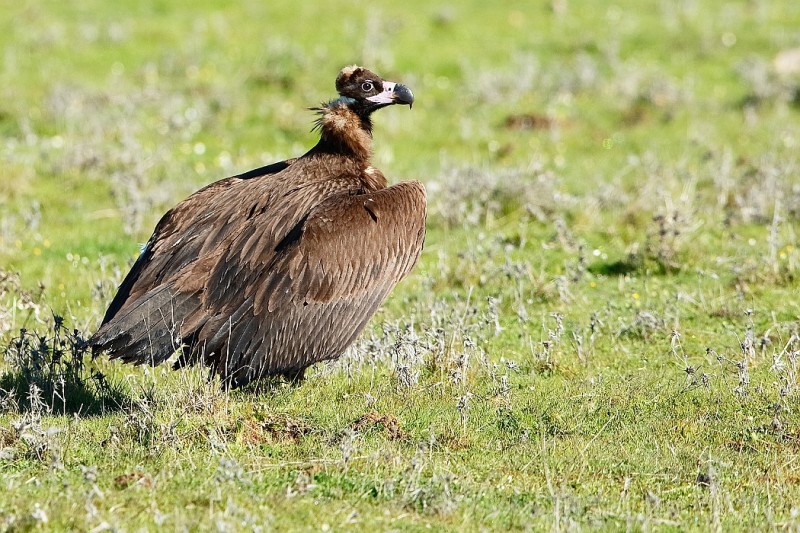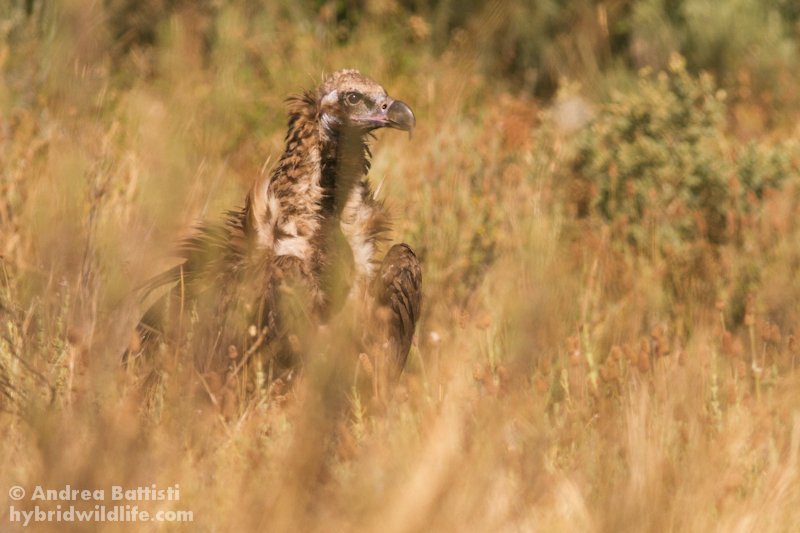Peregrine Falcon (Falco peregrinus)
Cinereous Vulture (Aegypius monachus)
Large and athletic falcon. Adults slate-grey above. Underparts white with black barring. Head almost black. Juveniles with brown tone to plumage, coarse longitudinal streaking below and paler head. Differs from the smaller falcons by less pointed wings, heavier hips and short tail. Highly contrasting and broad moustache-stripe. Smaller than Gyrfalcon with a more compact silhouette. The wings are not as broad, and belly not as deep. Underside of wings evenly barred, without contrasting coverts. Flight-pattern can recall Fulmar, with shallow, stiff wing-action.
Sound:A harsh, drawn out "kiaaaa" with emphasised endings repeated in series. Much slower than Merlin, but higher pitched than Gyrfalcon. Also shorter, coarse warning-calls.
Alarm call:
Distribution:
Wikipedia: map (se also Xeno-canto below)
Ecology:Birdlife ecology
Links:
Observation.org Latest observations
Image search Flickr NB! May give other species
CCSounds:Recorded by Jarek Matusiak,http://www.xeno-canto.org ,CC license
Europe's biggest raptor. All dark vulture with short, wedge-shaped tail and very long and broad wings. Legs pale, and usually readily visible. May resemble White-tailed Eagle or Greater Spotted Eagle at distance, but note short neck, less protruding head, even longer and broader wings, and shorter tail. Under wing-coverts darker than flight-feathers. Trailing edge of wing fairly straight compared to S-shaped edge in Griffon Vulture, making the overall wing-shape more squarish. This is most obvious when soaring on stretched wings. Soars with wings leveled, not raised, often with hand lowered. Frequently raises tail just before landing.
Sound:Voice little used but varied. Grunts,croaking, mewing, hissing etc. heard when breeding or feeding at carcasses.
Distribution:Wikipedia: map (se also Xeno-canto below)
Ecology:Birdlife ecology
Links:
Observation.org Latest observations
Image search Flickr NB! May give other species
CC
 English
English Albanian
Albanian
 Armenian
Armenian
 Bulgarian
Bulgarian
 Catalan
Catalan
 Croatian
Croatian
 Czech
Czech
 Danish
Danish
 Dutch
Dutch
 Finnish
Finnish
 French
French
 Georgian
Georgian
 German
German
 Greek
Greek
 Hungarian
Hungarian
 Italian
Italian
 Latvian
Latvian
 Lithuanian
Lithuanian
 Macedonian
Macedonian
 Norwegian
Norwegian
 Polish
Polish
 Portuguese
Portuguese
 Romanian
Romanian
 Russian
Russian
 Sami : Lule sami
Sami : Lule sami
 Sami : North sami
Sami : North sami
 Sami : South sami
Sami : South sami
 Scientific names
Scientific names
 Serbian
Serbian
 Spanish
Spanish
 Swedish
Swedish
 Ukrainian
Ukrainian

